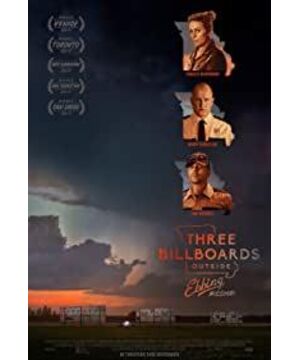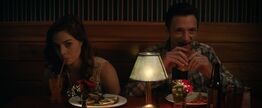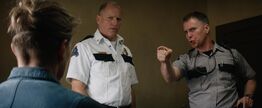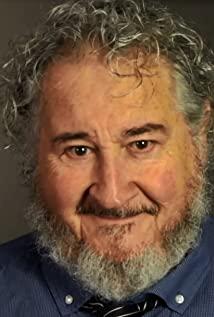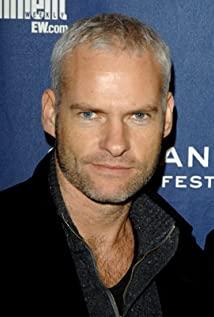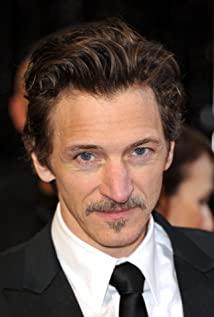After the British Academy Awards won five awards, these may become the most direct questions about "Three Billboards". In the film, the mother, Mildred, whose daughter was raped and killed but could not get the result of the case, is undoubtedly the most direct subject in pursuit of fairness and justice. With the help of abandoned billboards operated by advertising companies, it creates public opinion effects and prompts the police to pay attention to the case. . So how would she respond to Willoughby, or Dixon in the town police station? The film gives the answer straightforwardly, without leaving any suspense: intimidation, temptation, silence, and fights are a collection of all the stereotypes of the American police. Martin McDonald is not the master style of Spielberg. His works often contain strong British banter and absurdity. This is also true in "Three Billboards", from the unsmiling Mildred to the first. Dixon of Nesuji, the opening two scenes are very refined and highlight the character of the main characters, while Willoughby, who publicly answered the phone with foul language at the family dinner, only used two dialogues to show his prestigious social identity and thoughtfulness. Parent status.
Looking at it this way, it is indeed easy to fall into the usual criticisms of the ideology and political correctness of the Oscars. After all, "Three Billboards" is one of the most popular awards. When people are cut off from the horse, they can easily be defined as works that can rise to the heights of humanity, shady, fairness and justice. But in fact, the film really doesn’t care about this, or it can be said that the focus is entirely on the incidents and interpersonal interactions of the people in the small town around the rape and murder, trying to fight back in a multi-line interlaced way. Or it can be said to subvert the American main melody in the usual way of thinking.
Mildred itself is naturally the incarnation of justice, but the pursuit of justice has gradually escalated into a kind of aimless nothingness. When Willoughby, suffering from cancer, responded to her demands in an unexpected way, the value judgment coordinates of the whole film began to reverse: The police chief, who looked vicious, had an unknown warm side, and he has been trying to The hesitation of the rape and murder case finally failed and the effort to reverse the situation finally failed, and the consciousness that the film was destined to end in a happy ending was confirmed. In the interrogation room, Willoughby, who was tit-for-tat against Mildred, spurted blood. It was an extremely impactful scene in the play, and it was also a turning point for the subversion of all binary oppositional value judgments. After this scene, Mildred lost control of his pursuit and Willoughby made the ultimate choice in life. Even Dixon, who was irritable and mediocre, also experienced the test of life and death, and finally joined forces with Mildred to pursue the truth. In the seemingly conflicting situation of good and evil, there are all sorts of willows and flowers.
This is the profoundness of human nature, but I would prefer to describe it as an absurd analysis of the various one and two sides of the fate, just like the Japanese director Yuya Ishii’s "Our Family", the face of death is different for the whole family. Individuality is revealed one by one, optimism and frustration coexist, hope dances with disappointment. The same is true in "Three Billboards". The film does not give a clear answer on who is the murderer. The roles or attitudes of the characters are judged by the characters in the film. The creators have no clear tendency, just like the film. Like James, played by the "little devil" Peter Dinklage, he can be a neighbor to help each other, and easily turn against Mildred when he is extremely disappointed. It is the blindness of all these characters themselves that appears in the sober. In front of the audience, I was able to teach people to chew again and again.
Although "Three Billboards" has some Hollywood-style coincidences and uses very clichés, I don’t think he is the best hopeful for the final Oscars this year, because although it eventually turned into a positive energy oriented and affirmed all The value of family affection is carried out in a way that avoids the ultimate justice proposition put forward by the billboard. The scene where Mildred and Dixon join forces to advance to the location of the suspect does not have a stricter legal basis than other films. In fact, the coexistence of hope and disappointment in solving the case itself leads to the conclusion that the sustenance is tied to self-reliance. Based on the actions of the three billboards, the three billboards illuminate the hearts and minds of the people, but they cannot solve the surface problems they are trying to solve. The weakness of the Oscars, which emphasizes more and more correctness, easily stands out. Last year’s awards ceremony became a vows meeting to denounce Trump. This year, it was fully embraced by the Metoo trend. The entertainment show became more and more naked to show the nature of its American social and political tearing vane, which was presented in "Three Billboards." The noise and commotion with a more detached attitude seems to be more difficult to get the best response in American reality. Even if the film returns to the family consciousness, mainstream ideology is still happy to see it.
Perhaps at this moment, the greatest significance for Chinese audiences is to be able to see this uncut nominated work on the big screen on the eve of the Oscars. Everything starts from small progress. The characterization in the film seems to be worth learning from.
View more about Three Billboards Outside Ebbing, Missouri reviews


